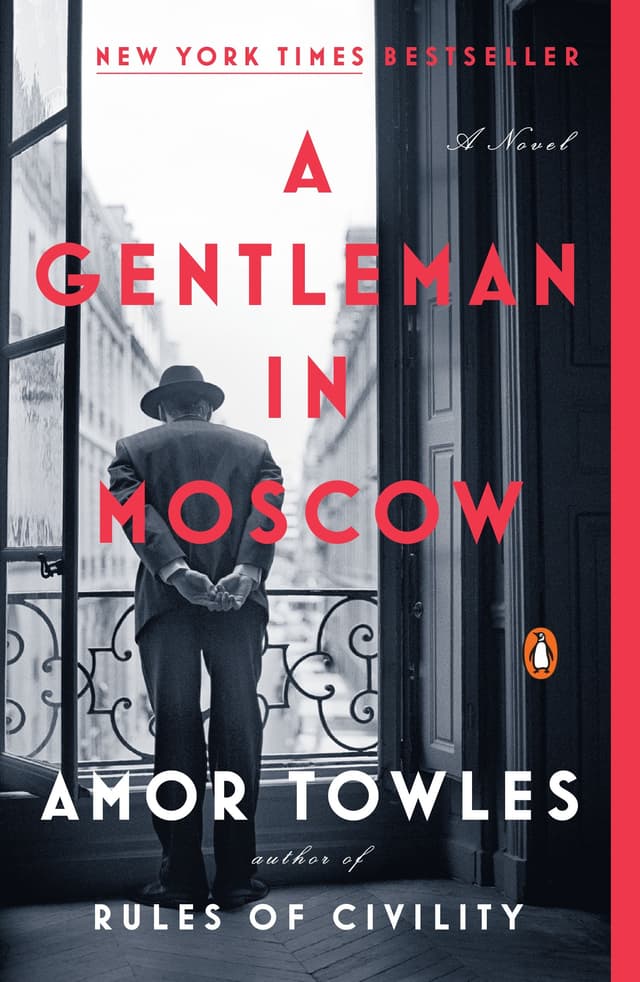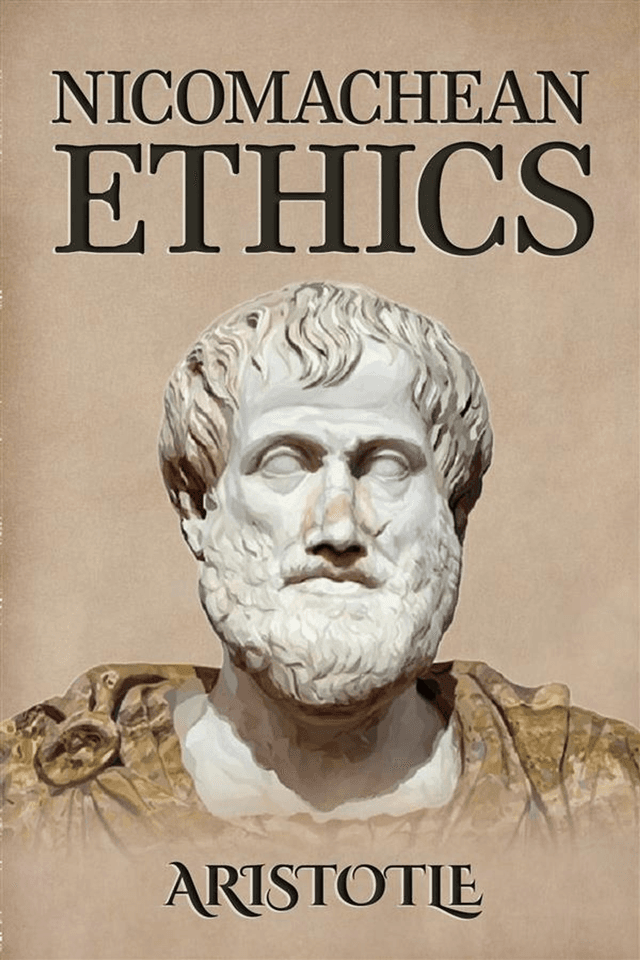A Gentleman in Moscow by Amor Towles vs. Nicomachean Ethics
A Gentleman in Moscow by Amor Towles
A Gentleman in Moscow is a historical fiction novel by Amor Towles. It follows Count Alexander Rostov, a Russian aristocrat who, after the Bolshevik Revolution, is sentenced to house arrest in the grand Hotel Metropol in Moscow. Instead of being imprisoned in a cell, he’s confined to the hotel, which becomes both his cage and his world. The story spans several decades, starting in the 1920s and running through key moments of Soviet history. Most of it unfolds inside the hotel, which is no ordinary place—it's a bustling, self-contained universe. Rostov, who begins the story living in a lavish suite, is forced to move into a tiny attic room. Despite this fall from grace, he navigates his new life with wit and charm, forming friendships with the hotel staff, guests, and unexpected visitors. The book isn’t just about the Count’s personal journey—it’s also about how time changes people and places, how history creeps in even when you’re standing still, and how small acts of kindness and lo...
Nicomachean Ethics
"Nicomachean Ethics," written by the ancient Greek philosopher Aristotle, is a foundational text in Western philosophy. This work explores the nature of ethical virtue and the path to a good and fulfilling life. Aristotle delves into concepts such as happiness (eudaimonia), virtue (arete), and the importance of practical wisdom (phronesis). The text is a detailed examination of how individuals can achieve moral and intellectual virtues through habitual practice and rational deliberation.

Reviews
Reviewed on 2/23/2025
Count Alexander Ilyich Rostov, a Russian aristocrat is sentenced to house arrest in his residence at a luxury Hotel Metropol in Moscow. The story spans decades, as Rostov develops friendships, enmities and relationships with the staff and guests at the Metropol. I've actually listened to this story as an Audible audiobook two or three times.
Reviews
| Item | Votes | Upvote |
|---|---|---|
| No pros yet, would you like to add one? | ||
| Item | Votes | Upvote |
|---|---|---|
| No cons yet, would you like to add one? | ||
| Item | Votes | Upvote |
|---|---|---|
| Essential reading for students of philosophy and ethics | 1 | |
| Practical wisdom | 1 | |
| Offers profound reflections on ethics and the good life | 1 |
| Item | Votes | Upvote |
|---|---|---|
| Dense and complex | 1 |
Frequently Asked Questions
'A Gentleman in Moscow' offers a narrative-driven experience with rich character development and historical context, making it accessible and engaging for a wide audience. In contrast, 'Nicomachean Ethics' is a philosophical text that requires careful reading and contemplation, focusing on ethical theories and the pursuit of a virtuous life. The choice between the two depends on whether you prefer a fictional narrative or a philosophical exploration of ethics.
'A Gentleman in Moscow' provides insights into human relationships, resilience, and the passage of time through the lens of a character's life in a confined setting. It offers a narrative that can inspire readers to reflect on their own lives. On the other hand, 'Nicomachean Ethics' directly addresses practical wisdom and ethical living, making it a foundational text for understanding how to lead a good life. If practical ethical guidance is your goal, 'Nicomachean Ethics' may be more beneficial.
'Nicomachean Ethics' is generally considered denser and more complex due to its philosophical content and terminology, which may require more effort to understand. In contrast, 'A Gentleman in Moscow' is a narrative novel that is typically easier to read and more engaging for a broader audience. Therefore, readers looking for a light and enjoyable read may find 'A Gentleman in Moscow' more accessible than the philosophical challenges presented in 'Nicomachean Ethics.'
'A Gentleman in Moscow' is a historical fiction novel by Amor Towles that follows Count Alexander Rostov, a Russian aristocrat sentenced to house arrest in the Hotel Metropol in Moscow after the Bolshevik Revolution. The story spans several decades, exploring Rostov's life within the confines of the hotel, his relationships with staff and guests, and the impact of historical events on his existence.
The author of 'A Gentleman in Moscow' is Amor Towles, an American novelist known for his engaging storytelling and richly drawn characters.
'A Gentleman in Moscow' explores themes such as the passage of time, the impact of history on individual lives, the importance of friendship and loyalty, and the resilience of the human spirit in the face of adversity.
The ambiance in 'A Gentleman in Moscow' is richly described, capturing the opulence of the Hotel Metropol and the various settings within it, from fine dining rooms to hidden corridors. The novel conveys a sense of nostalgia and warmth, reflecting the Count's experiences and interactions over the decades.
Pros of 'A Gentleman in Moscow' include its beautifully crafted prose, engaging character development, and the exploration of profound themes within a historical context. However, some readers may find the pacing slow at times, as much of the story unfolds within the confines of the hotel without significant action.
Readers generally appreciate 'A Gentleman in Moscow' for its rich storytelling and character depth. Many enjoy the audiobook format, with some listeners having experienced the story multiple times, indicating its lasting impact and appeal.
'Nicomachean Ethics,' written by the ancient Greek philosopher Aristotle, is a foundational text in Western philosophy. This work explores the nature of ethical virtue and the path to a good and fulfilling life. Aristotle delves into concepts such as happiness (eudaimonia), virtue (arete), and the importance of practical wisdom (phronesis). The text is a detailed examination of how individuals can achieve moral and intellectual virtues through habitual practice and rational deliberation.
Pros of 'Nicomachean Ethics' include it being essential reading for students of philosophy and ethics, offering practical wisdom, and providing profound reflections on ethics and the good life. However, a con is that the text can be dense and complex.




















